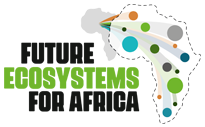Reconnecting Research and Practice: Blue Africa at WIOMSA 2025
Blue Africa aims to synthesise existing knowledge on Africa’s marine ecosystems andcollaborates with African experts and stakeholders to provide an evidence-base to guide ocean-based climate actions that benefit ecosystems and people. This will be achieved by bringing together different expertise from across the continent to co-develop and identify key data to be synthesised, made relevant and communicated to diverse stakeholders.
The WIOMSA Symposium in Mombasa provided an opportunity for Blue Africa to reconnect with local seed actors, validate research outputs, and advance a more inclusive vision for coastal food systems. Through linked engagements, including the launch of the Mombasa case study materials, the SARA mini-symposium, and contributions to the WIOMSA magazine, the Blue Africa–Ascend team helped foster more diverse ways of thinking about ocean literacy, policy engagement, and locally led transformation.
The Coastal Food System Networking Event, held on 30 September as a WIOMSA side event, brought together Mombasa’s food system actors, including farmers, processors, recyclers, researchers, artists, and tech entrepreneurs, for a moment of strategic reconnection. Co-hosted by Prof. Laura Pereira and Amanda Radebe, and supported by IDRC small grants, the event launched the Mombasa workshop report and seed booklet, designed to amplify local voices and support policy engagement. Joyce Ojino, PhD candidate and lead on the Mombasa case study, played a pivotal role in finalising materials and mobilising seed actors.
The gathering created space for seed actors to reflect on recognition, capacity-building, and the role of agriculture within blue economy frameworks. Hon. Patrick Mbelle, MCA for Bamburi Ward and chairperson of the Assembly Committee on Blue Economy, attended following a direct invitation from a seed actor. He emphasised the need for community-led mobilisation, noting that policymakers can’t respond to needs they haven’t heard, and that communities themselves are best placed to shape relevant, responsive policies. The exchange highlighted opportunities to bridge the science–policy–practice gap, with research outputs serving as tools for self-advocacy and informed decision-making.
Blue Africa also contributed to the SARA mini symposium, which convened members of the Southern African Resilience Academy to explore how African Indigenous knowledge systems and artistic practices can reshape marine science. The session challenged conventional evidence frameworks, asking how we might move beyond graphs and pie charts to more intuitive, joyful ways of knowing and sharing. Artists were framed not as communicators, but as vessels of community insight. Through storytelling, diffraction, and reflection, contributors explored how ocean literacy, recast as “fluency”, can become a living, inclusive practice rooted in cultural connection and social justice.
These themes were echoed in the launch of the WIOMSA magazine, which featured contributions from across the region, including Blue Africa’s work, with a framing piece co-authored by Laura Pereira and other members of the SARA cohort, on ocean literacy, arts-based research, and community-led conservation. The edition called for a shift from metrics to meaning, and from Western-led futures to African-led fluencies. Together, these engagements reflect the core of Blue Africa: connecting data to lived realities and ensuring coastal futures are shaped by the people who live them. It’s about policy, yes, but also about dignity, creativity, and grounded transformation.
Read more on Blue Africa here: https://ascendclimate.org/blue-africa/

